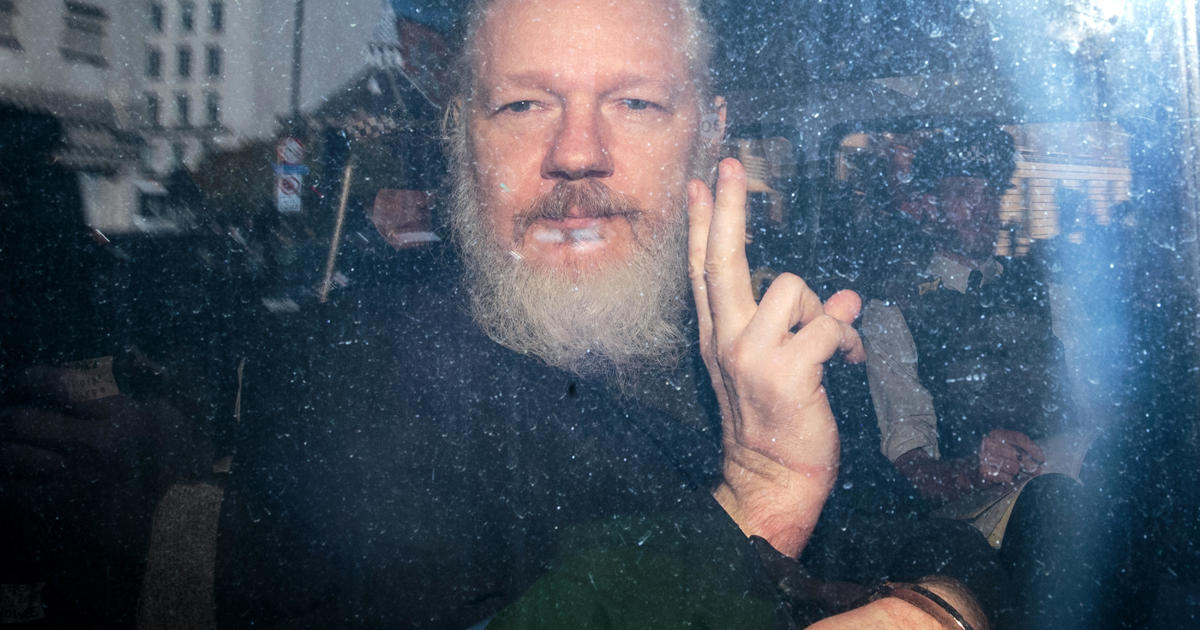Julian Assange, the controversial founder of WikiLeaks, has agreed to plead guilty to violating the Espionage Act and is expected to appear in a U.S. courtroom on the Northern Mariana Islands in the coming days. This revelation comes from court records that were revealed on Monday, shedding light on the resolution of Assange’s outstanding legal matters with the U.S. government. As part of the plea agreement, Justice Department prosecutors have recommended a prison sentence of 62 months in custody for Assange, which is on the high end for a single-count violation. However, Assange will not spend any time in U.S. custody as he will receive credit for the approximately five years he has already spent in a U.K. prison fighting extradition to the U.S.
In a letter to the federal judge, the Justice Department disclosed that Assange opposed traveling to the continental U.S. to enter the guilty plea. It is expected that after the court hearing, Assange will return to his native Australia. Assange, an Australian national, was indicted in 2019 by a federal grand jury in Virginia on more than a dozen charges related to illegally obtaining and disseminating classified information about America’s wars in Afghanistan and Iraq on his WikiLeaks site. Prosecutors at the time accused him of recruiting individuals to hack into computers and/or illegally obtain and disclose classified information.
One of Assange’s most well-known recruits was U.S. Army intelligence analyst Chelsea Manning, who was convicted of the 2010 leak of hundreds of thousands of sensitive military records to WikiLeaks. Manning was sentenced to 35 years in prison, but her sentence was commuted by former President Barack Obama in 2017. Assange was accused of working with Manning to figure out the password on a Defense Department computer system that stored sensitive records about the Iraq and Afghanistan wars, as well as hundreds of Guantanamo Bay detainee assessment briefs.
Federal prosecutors also alleged that Assange published the names of individuals worldwide who provided information to the U.S. government under the expectation of confidentiality. Assange has consistently denied any wrongdoing, with his supporters arguing that the charges should not have been filed as he was acting as a journalist in reporting on government actions. He has been in British custody since 2019 and has been fighting extradition to the U.S. to face federal charges. The expected guilty plea brings an end to this lengthy legal battle.
In May, Assange won his bid to appeal his extradition to the U.S. on espionage charges after a British court requested assurances from the U.S. government that Assange would be granted free speech protections under the U.S. Constitution and would not face the death penalty if convicted. President Biden stated in April that he was considering a request from Australia to allow Assange to return to his native country and called for the U.S. to drop the case against him.
Assange has faced legal troubles for over a decade, starting in 2010 when a Swedish prosecutor issued an arrest warrant related to rape and sexual assault allegations by two women, which Assange denied. As he faced extradition to Sweden, he sought political asylum at the Ecuadorian Embassy in London, where he lived for seven years until he was evicted in 2019. Swedish prosecutors dropped their investigation into Assange in 2017, and the international arrest warrant against him was withdrawn, but he was still wanted by British police for skipping bail when he entered the embassy.
By early 2019, Ecuador grew weary of its house guest, accusing Assange of smearing his feces on the walls and attacking its guards. Then-President Lenin Moreno referred to Assange as an “informational terrorist” who selectively released information according to his ideological commitments. At the request of the U.S. government, British police arrested Assange on April 11, 2019, after Ecuador ended his asylum, and he was facing charges in the U.S. related to the 2010 leak.
WikiLeaks played a significant role in the 2016 presidential election by publishing thousands of emails from Hillary Clinton’s campaign and the Democratic National Committee that had been stolen by Russian government hackers. Although WikiLeaks and Assange are mentioned numerous times in special counsel Robert Mueller’s report on Russian interference in the election, they were not charged for their conduct in 2016.
The legal saga surrounding Julian Assange has been complex and contentious, spanning multiple countries and involving a variety of charges and accusations. As he prepares to enter a guilty plea and potentially return to Australia, the case of the WikiLeaks founder continues to captivate and provoke debate around the world. The outcome of his plea agreement and the resolution of his legal troubles will undoubtedly have far-reaching implications for press freedom, government transparency, and the future of whistleblowing in the digital age.









